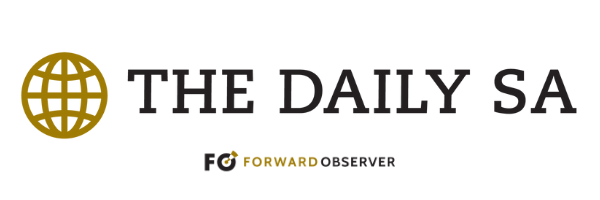Good morning. Here’s your Daily Situational Awareness for Monday, 24 January 2022. You can receive this daily briefing by signing up at https://forwardobserver.com/daily-sa
TODAY’S BRIEFING:
- U.S. planning oil contingency for Russian invasion
- China digging in at joint U.S. naval base in Cambodia
- Vaccine mandate for border truckers
- Continuing resolutions delay Navy’s modernization
- Bipartisan Electoral Count Act review
- Hazards Warning
UPGRADE TO EARLY WARNING AND GET THESE BRIEFINGS:
- Russia-NATO SITREP: U.S. BEGINS EVACUATION OPERATIONS IN KYIV
- Indo-Pacific SITREP: U.S. SENDS CHINA A MESSAGE, CHINA SENDS ONE BACK
- LIC Summary/ INTSUM
SITUATIONAL AWARENESS
OIL CONTINGENCY FOR RUSSIAN INVASION: The U.S. is currently engaging in talks with large gas exporters to plan for contingency measures if Russia were to invade Ukraine and cause supply disruptions. The planning comes after limited success in negotiations between the U.S. and Russia. There are limited options without oil support from the Middle East for EU nations. (Analyst Comment: With the increasing likelihood of a Russian invasion, the U.S. and EU are bracing for oil supply chain disruptions. Contingency options with Middle East nations are also at risk with increasing terrorist attacks from Iranian proxies. Current geopolitical conflicts, supply chain constraints, and inflation are factors supporting the potential for rising gas prices in the near term. – D.F.)
CHINA DIGGING IN AT JOINT U.S. NAVAL BASE IN CAMBODIA: Satellite imagery recently released by the Asian Maritime Transparency Initiative showed Chinese dredging equipment operating at a Joint U.S. – Cambodian naval base. The U.S. funded the construction of Ream Naval Base to enable joint naval operations with Cambodia. In 2019 Cambodian prime minister Hun Sen signed a secret agreement with China to begin expansion operations at the base and construct facilities for China’s navy to dock larger warships. In 2020 the Cambodian navy demolished some of the U.S.-built facilities and closed off the base to U.S. personnel. (AC: The dredging operations are an indicator that China is conducting a substantial upgrade of the facility. Previously, the Ream Naval Base was only capable of supporting small riverine and coastal patrol vessels. This is likely an example of Chinese money speaking louder than U.S. money as Hun Sen’s administration is notoriously corrupt. – M.M.)
VACCINE MANDATE FOR BORDER CROSSINGS: On 22 January 2022, the vaccine mandate requiring all non-U.S. individuals entering the United States went into effect. The mandate is similar to the mandate imposed by the Canadian government earlier this month. The impacts compound the already existing strains in the U.S. supply chain, specifically on the trucking workforce. Estimates for American and Canadian predict that up to 20% of the cross-border trucking drivers could be taken off the road. (AC: With the U.S. and Canada implementing the mandate, supply shipments from foreign nations are expected to be reduced. Canadian retailers are reportedly preparing themselves for higher prices and empty shelves. The trucking industry will continue to have the most impact resulting in longer lead times and limited inventory. – D.F.)
FUNDING UNCERTAINTY HITS FUTURE NAVY PLANS: Washington’s reliance on continuing resolutions for government funding is delaying the Navy’s modernization plans. Separate from the National Defense Authorization funds, a modernization review for “vertical lift systems” is delayed nearly a year. In order to allocate funds in future defense spending bills, these reviews are required for presentation to Congressional appropriators. (AC: Future conflict in the Pacific will rely heavily on all service components’ helicopters and other vertical lift platforms such as the V-22 Osprey. Continual delays in this modernization process will directly reduce our ability to effectively conduct “island-hopping” combat operations against China. The inability of Congress to simply fund generational equipment reviews is likely to make the history books a key factor in the outcome of future U.S. conflicts. – D.M.)
BIPARTISAN ELECTORAL COUNT REVIEW: After last week’s failed push on voting rights, Senate Democrats and Republicans are starting negotiations to update the Electoral Count Act. The law from 1887 spells out the Vice President’s role and authority in certifying elections, which the Senate believes is too vague. To prevent a repeat of the 2020 election, negotiators are also considering tighter protections for election workers and expanding security grants to local election boards. (AC: The current Election Security Task Force already stated their approach to the upcoming midterms: hands-on. Attempting to secure contested elections by both major parties is less a sign of bipartisanship and more indicative of a political system teetering on collapse. When it comes to updating statutes and doling out grants, each party exerts pressure on the process to ensure a most-favorable outcome. The “security grants” are a likely avenue for bribery of local election officials. – D.M.)
HAZARDS/WX:
Upgrade your Situational Awareness to Early Warning and continue the brief here: https://forwardobserver.com/subscribe

